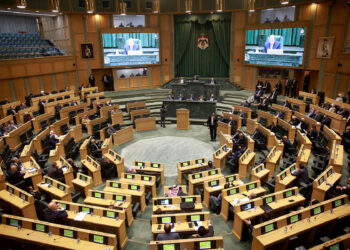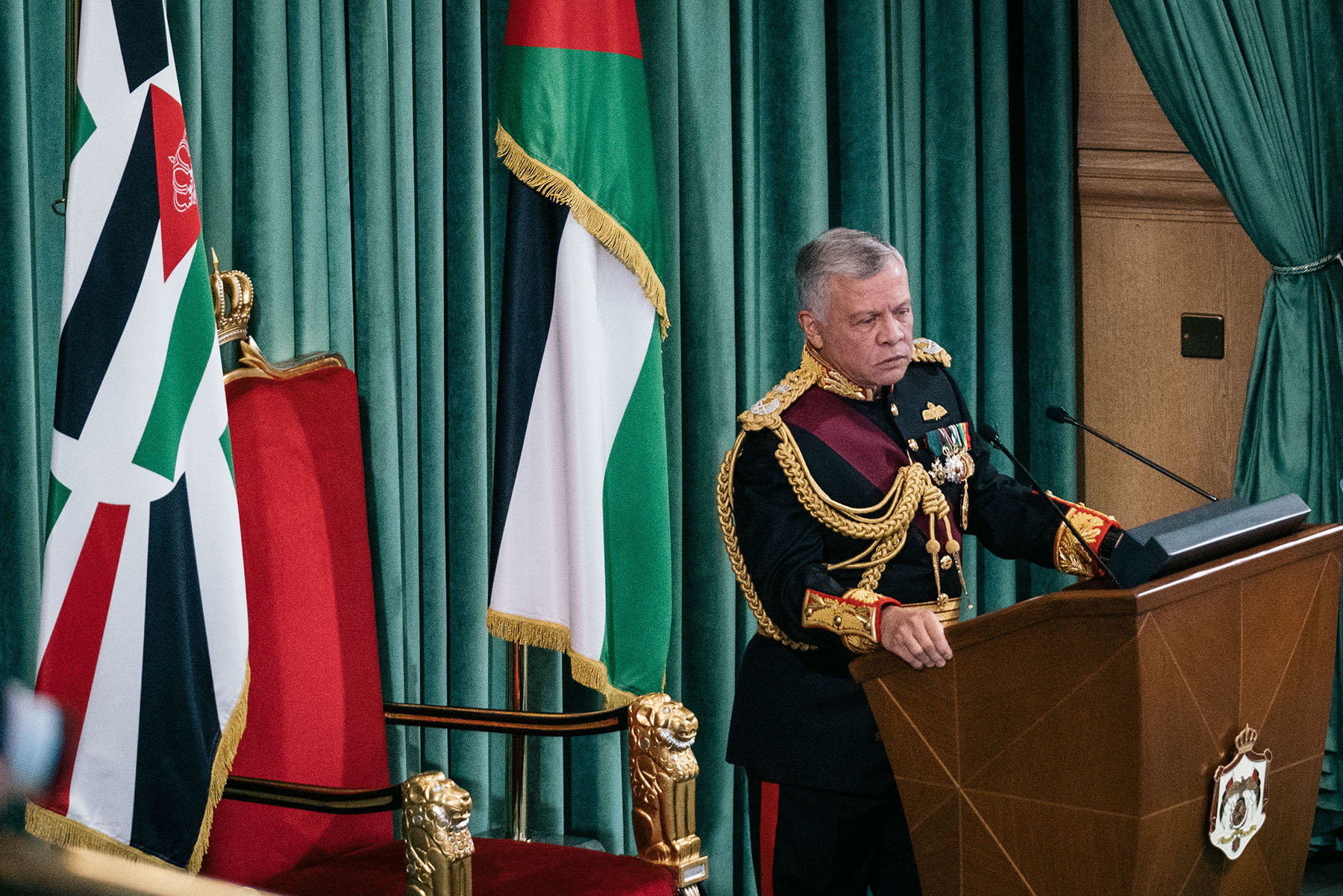Ola Suliman is a Syrian human rights advocate from Homs and a member of the Civil Peace Initiative, a grassroots group working to rebuild trust and counter sectarian violence in post-conflict Syria. She works with the Syria Campaign, an advocacy group, where she focuses on amplifying Syrian voices, advocating for detainees and pushing for accountability.
As Syria recovers from the bloodiest weeks since President Bashar al-Assad was overthrown, with more than 1,000 people reported killed in sectarian massacres in the country's coastal areas in early March, the basic contours of what happened are now largely understood. Assad loyalists, having declared an insurgency against the new government, ambushed security forces in Latakia province, the heartland of Syria's Alawite minority. Government forces and allied militias quickly flooded the region in response. Clashes with pro-Assad fighters descended into a campaign of sectarian reprisals by forces linked to the government and armed factions that back it, with some militiamen going door to door killing entire Alawite families.
Although the violence has since reduced in scale, people are still terrified and questions remain about what really incited it, due to the absence of official statements from Syria's new authorities and an information landscape where rumors often take the place of facts. In the place of any official source of information about the bloodshed in the coastal provinces, online hate speech and misinformation flourished instead, inflaming the situation and feeding a cycle of violence.
Since December, well before this escalation of mass killings, our group, the Civil Peace Initiative in Homs, Syria's third-largest city, has been working to support reconciliation efforts and foster open dialogue among the city's diverse communities. Founded in the wake of the Assad regime's collapse, we understood that building trust required more than calls for unity; it meant documenting and calling out the new government for ongoing human rights violations in Homs and its surrounding countryside. These abuses have been wide-ranging: extrajudicial killings, sectarian hate speech, violations by state-affiliated armed groups, sectarian kidnappings, forced displacement and the dismissal of hundreds of public sector employees. Yet there have been no official channels to offer clarification or answers to these reports of sectarian violence, especially against Alawites. Even worse, certain journalists closely aligned with the new authorities in Damascus, who have been given access to the presidential palace, have been rationalizing or outright denying the sectarian atrocities over the past few months.
In early March, we redirected all our efforts toward tracking the bloodshed in the coastal region as it unfolded. It quickly became clear how dangerous the new government's lack of action had been. Although the government had responded to public pressure by acknowledging extrajudicial killings in one Alawite village in January and launching an investigation, we still don't know who was held accountable or what steps, if any, were taken to prevent further killings like them. More troubling, incidents that failed to generate public outcry went unacknowledged, further deepening the rupture of trust between the new authorities in Damascus and Syria's Alawite community.
In the place of any official source of information about the bloodshed in the coastal provinces, online hate speech and misinformation flourished instead, inflaming the situation and feeding a cycle of violence.
- Ola Suliman
Taking advantage of this information void, shadowy networks and accounts have emerged on social media, presenting themselves as the sole defenders of Alawites. They reported selectively on human rights violations—occasionally posting verified incidents to gain credibility—only to follow them with a torrent of fabricated or distorted claims: old videos of ISIS atrocities repurposed as recent attacks, AI-generated images depicting fictional massacres—all feeding into a single, familiar message the Assad regime had long perfected: If I fall, the Alawites fall with me.
For many in the Alawite community—uncertain and anxious about what a new government might bring—the absence of reliable reporting, or even the most basic information on incidents of sectarian violence, gave these false narratives fertile ground. Even falsehoods, when wrapped in fragments of truth, began to feel plausible. And so, when these networks urged Alawites to remain armed, to defend themselves, to fight back, it no longer sounded like propaganda—it sounded like a warning.
Verify-Sy, an independent fact-checking platform that uses open-source intelligence to counter viral disinformation in Syria, traced many of these social media accounts back to Iranian networks, including affiliates in Iraq and Lebanon. The German news agency DW reported on "AI fakes and manipulated historical images online [that] inflamed the real-life fighting" on the coast, some of which was posted on X, formerly Twitter, by social media who told DW that they were affiliated with Iraq's Popular Mobilization Forces, the Shia militias closely tied to both Iran and Hezbollah in Lebanon.

Although the Syrian uprising gave rise to a number of independent media initiatives, many of which uphold the principles of ethical journalism, they struggle today with a lack of legitimacy among a population that, for decades, knew only government-controlled narratives. This disconnect has made it difficult for these outlets to gain public trust, despite their commitment to accuracy and accountability.
While Syria's new interim authorities now control the Syrian Arab News Agency and other state media institutions, reviving or reforming them is far from a national priority in a country devastated by years of war. In the absence of strong, trusted media institutions, social media has become the primary source of information for most Syrians—making the fight against disinformation even more urgent and complex.
Human rights organizations and civil society groups that emerged during the Syrian uprising have stepped in with two main goals: to document the atrocities and to push back against exaggerations and manipulated narratives that feed on and stoke sectarian fears. They have also called on the new government to take these violations seriously and to hold accountable those responsible for crimes against the Alawite community, before it is too late.
As long as one of the sparks that ignited this sectarian violence continues to burn, and the information void in Syria is filled by actors whose survival depends on the country's chaos, this cycle of violence will only get worse.
- Ola Suliman
However, we are not just fighting individual social media accounts that spread misinformation. We are also up against the business model of giant tech companies and the entire architecture of social media, with its algorithms that prioritize virality over accuracy. Social media companies like Meta and X make their money by analyzing user data, and that data is harvested through engagement: clicks, shares, comments. People often tend to share content that aligns with their preexisting views and emotions, including their anxieties. In Syria's case—a country emerging from over five decades of dictatorship—fear and uncertainty dominate the national psyche.
Recent studies have shown that content designed to provoke fear or outrage spreads the fastest on social media, generating maximum engagement, regardless of whether it is accurate or not. Meanwhile, accounts that are weighed down by nuance and a commitment to truth struggle to keep pace.
This business model isn't new and has underpinned social media in some form or another since its inception. But Meta at least used to maintain the illusion of responsibility. In 2017, the company launched the Facebook Journalism Project to build ties with the news industry. Two years later, it introduced an Arabic fact-checking initiative in partnership with AFP, the French news agency, to curb the spread of misinformation in the Middle East. Although these efforts were flawed, they did give Syrian civil society groups and citizen journalists a lifeline. They could flag dangerous content—images of massacres stripped of context, hate speech weaponized by both state and non-state actors. It wasn't perfect, but it was something.
In an effort to supposedly appear more politically neutral—which in fact has meant appeasing President Donald Trump—Meta has recently dismantled key teams focused on monitoring misinformation. It scaled back partnerships with independent fact-checking organizations that once flagged misleading content, including in Arabic, essentially abandoning content moderation.
When virality equates to credibility, those working to verify and debunk misinformation must fend for themselves, while also facing waves of hate and harassment online from the very accounts spreading the misinformation. With no one stepping in to support their credibility, many disconnect from social media to protect themselves from widespread harassment and toxic online behavior. A recent report by the Syria Campaign found that this experience is not unique to Syria; across Europe, people are retreating from digital spaces in response to the harassment and abuse they face.
In Syria, where sectarian tensions simmer just beneath the surface and no credible state media exists to anchor the public in moments of national chaos or confusion, the consequences of such misinformation are not just destabilizing—they are deadly. In recent months, as the new government failed to respond adequately to ongoing human rights violations and threats of reprisal killings, public trust steadily deteriorated and paranoia and fear intensified, feeding into the anger that culminated in the sectarian violence on the coast.
What might have initially been a smaller group of Assad loyalists attempting armed resistance instead expanded into larger groups launching coordinated attacks against government forces, which led to the government responding with overwhelming force that devolved into massacres of Alawites.
Although the interim government has acknowledged the violence and named a fact-finding committee to investigate what it calls "the events on the coast," it appears incapable of stopping further bloodshed or even clearly stating how it intends to hold accountable its own soldiers and other militias only loosely under its control. As Syria attempts to emerge from civil war and five decades of state violence under the Assad regime, the new government must recognize that what Syria needs now is not only a constitution, but a conscience. It must invest in the infrastructure of truth: free and independent media that can inform the public, provide an alternative to social media platforms where the loudest voices are often the most extreme, and challenge authority—not whitewash it.
As long as one of the sparks that ignited this sectarian violence continues to burn, and the information void in Syria is filled by actors whose survival depends on the country's chaos, this cycle of violence will only get worse.






































